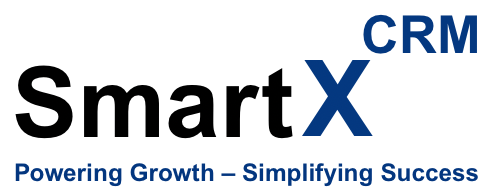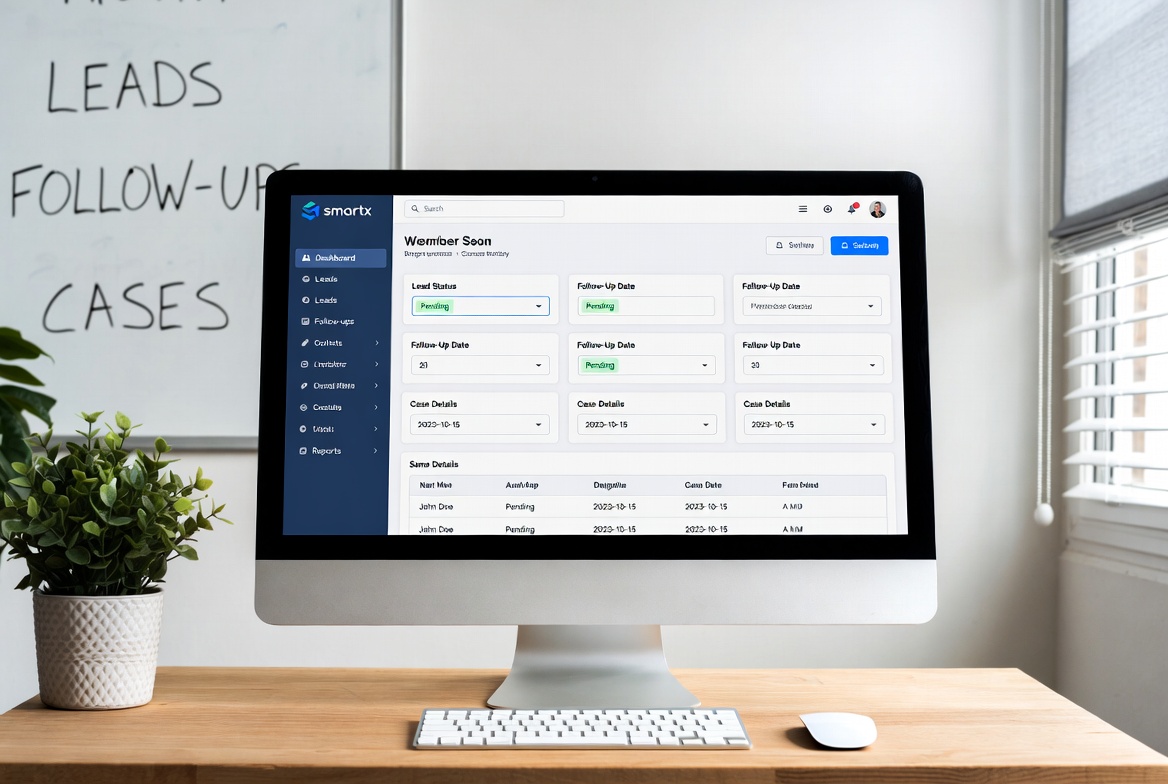The healthcare and wellness industry is experiencing unprecedented growth, with the global wellness economy valued at over $5.6 trillion. However, with increased competition and evolving patient expectations, healthcare providers need sophisticated tools to attract, nurture, and convert leads effectively. This is where a specialized healthcare CRM for lead generation becomes indispensable.
What is Healthcare & Wellness Lead Generation CRM?
A healthcare lead generation CRM is a specialized customer relationship management system designed specifically for medical practices, wellness centers, hospitals, and healthcare service providers. Unlike generic CRM solutions, healthcare CRMs are built to handle the unique challenges of patient acquisition, HIPAA compliance, appointment scheduling, and the complex patient journey from initial inquiry to treatment completion.
Key Features of Healthcare CRM Systems
Patient Lead Management: Healthcare CRMs excel at capturing leads from multiple sources including website forms, social media, referrals, and walk-ins. The system automatically organizes these leads based on service type, urgency, and conversion probability.
Automated Follow-ups: With automated follow-up systems, healthcare providers can ensure no potential patient falls through the cracks. The system sends personalized messages at optimal times, increasing conversion rates significantly.
Appointment Scheduling Integration: Modern healthcare CRMs integrate seamlessly with scheduling systems, allowing patients to book appointments directly while maintaining lead tracking throughout the process.
Compliance Management: Healthcare CRMs are designed with HIPAA compliance in mind, ensuring all patient data is secured and handled according to federal regulations.
Why Healthcare Providers Need Specialized Lead Generation CRM
The Unique Challenges of Healthcare Marketing
Healthcare marketing differs significantly from other industries due to regulatory constraints, patient privacy concerns, and the emotional nature of health-related decisions. Traditional marketing approaches often fall short in this sensitive environment.
Trust Building: Patients need to trust their healthcare providers completely. A healthcare CRM helps build this trust by enabling personalized communication, timely responses, and consistent follow-up care.
Multi-Channel Patient Acquisition: Modern patients research healthcare options across multiple channels – Google searches, social media, review sites, and referrals. A comprehensive lead management system consolidates all these touchpoints into a single, manageable platform.
Long Sales Cycles: Healthcare decisions often involve extended research and consideration periods. Patients may take weeks or months to decide on elective procedures or specialized treatments. A robust CRM system maintains engagement throughout these extended decision cycles.
ROI Benefits of Healthcare CRM Implementation
Healthcare practices using specialized CRM systems report significant improvements in key performance metrics:
- Lead Conversion Rates: Increase by 25-40% through systematic follow-up and personalized communication
- Patient Acquisition Costs: Decrease by 20-30% through better lead scoring and targeted marketing
- Patient Lifetime Value: Increases by 35-50% through improved retention and cross-selling of services
- Administrative Efficiency: Improves by 40-60% through automation of routine tasks
Essential Features for Healthcare & Wellness CRM
Advanced Lead Scoring and Segmentation
Behavioral Scoring: The system tracks potential patient interactions across all touchpoints – website visits, email opens, social media engagement, and phone inquiries. This data creates comprehensive lead scores that help prioritize follow-up efforts.
Demographic Segmentation: Healthcare CRMs segment leads based on age, location, insurance type, and specific health interests. This segmentation enables highly targeted marketing campaigns with significantly higher conversion rates.
Treatment-Specific Tracking: Different medical services require different approaches. A cosmetic surgery lead requires different nurturing than someone seeking physical therapy. Advanced CRMs create service-specific lead journeys.
HIPAA-Compliant Communication Tools
Secure Messaging: All patient communications must meet HIPAA requirements. Healthcare CRMs provide secure messaging systems that protect patient privacy while enabling effective communication.
Encrypted Data Storage: Patient information is stored with enterprise-level encryption, ensuring compliance with federal regulations while maintaining accessibility for authorized staff.
Audit Trails: Complete tracking of all patient interactions creates comprehensive audit trails, essential for compliance reporting and quality assurance.
Integration Capabilities
EHR Integration: Modern healthcare CRMs integrate seamlessly with Electronic Health Record systems, creating a unified patient view from first inquiry through treatment completion.
Practice Management Software: Integration with scheduling, billing, and practice management tools eliminates duplicate data entry and ensures consistent patient information across all systems.
Marketing Platform Connections: Integration capabilities include connections to email marketing platforms, social media advertising tools, and website analytics systems.
SmartXCRM’s Mizo: Revolutionizing Healthcare Lead Generation
SmartXCRM’s Mizo platform represents the next generation of healthcare CRM technology, specifically designed to address the unique challenges facing modern healthcare providers.
Intelligent Lead Capture and Routing
Mizo’s advanced lead capture system automatically identifies and routes leads based on service type, location, and urgency. The system integrates with websites, social media platforms, and WhatsApp communication, ensuring no potential patient inquiry is missed.
Multi-Channel Integration: The platform captures leads from:
- Website contact forms and chatbots
- Social media advertising campaigns
- Google Ads and search marketing
- Referral tracking systems
- Walk-in patient registrations
Automated Patient Journey Management
Mizo CRM’s automation suite creates personalized patient journeys based on service interest and engagement level. The system automatically sends relevant information, schedules follow-up calls, and triggers appointment reminders.
Personalized Content Delivery: Based on patient interests and demographics, Mizo delivers targeted content including:
- Educational materials about specific treatments
- Success stories and testimonials
- Insurance and financing information
- Pre-appointment preparation guides
Advanced Analytics for Healthcare Marketing
Healthcare providers need detailed insights into their marketing performance and patient acquisition costs. Mizo provides comprehensive analytics including:
Lead Source Analysis: Detailed tracking of which marketing channels generate the highest-quality leads and best conversion rates.
Patient Lifetime Value Calculations: Understanding the long-term value of different patient segments helps optimize marketing spend and service offerings.
Conversion Funnel Analysis: Identifying where potential patients drop out of the conversion process enables targeted improvements.
Implementing Healthcare CRM: Best Practices
Data Migration and Setup
Existing Patient Data: Importing existing contacts requires careful planning to ensure data integrity and compliance. The migration process should include data cleaning, duplicate removal, and proper categorization.
Staff Training: Successful CRM implementation requires comprehensive staff training. Team members need to understand not just how to use the system, but how it improves patient care and practice efficiency.
Workflow Customization: Customizing fields and workflows ensures the CRM matches existing practice processes while introducing efficiency improvements.
Compliance and Security Considerations
HIPAA Compliance: All healthcare CRMs must meet strict HIPAA requirements. This includes not just data storage, but also access controls, audit logging, and staff training on privacy protocols.
Data Security: Healthcare practices are prime targets for cyberattacks. Robust security measures including encryption, secure access controls, and regular security audits are essential.
Regular Compliance Audits: Ongoing compliance monitoring ensures the CRM system continues to meet regulatory requirements as they evolve.
Advanced Healthcare CRM Strategies
Predictive Analytics for Patient Acquisition
Modern healthcare CRMs use artificial intelligence to predict patient behavior and optimize lead generation strategies. These systems analyze historical data to identify patterns that indicate high conversion probability.
Seasonal Trend Analysis: Understanding when different types of patients are most likely to seek treatment helps optimize marketing timing and budget allocation.
Churn Prevention: AI-powered systems can identify patients at risk of seeking care elsewhere, enabling proactive retention efforts.
Omnichannel Patient Experience
Today’s patients expect seamless experiences across all touchpoints. Healthcare CRMs must integrate all communication channels to provide consistent, personalized interactions.
Social Media Integration: Patients increasingly discover healthcare providers through social media. CRMs must track and respond to social media inquiries while maintaining appropriate professional boundaries.
Email Marketing Automation: Data-driven email marketing helps healthcare providers stay connected with potential and existing patients through educational content and appointment reminders.
Referral Management Systems
Medical referrals remain a crucial source of new patients. Advanced CRMs track referral sources, automate thank-you communications, and provide referral partners with patient status updates where appropriate.
Referral Partner Portals: Some healthcare CRMs provide secure portals where referring physicians can track patient progress and outcomes, strengthening professional relationships.
Measuring Healthcare CRM Success
Key Performance Indicators (KPIs)
Lead Conversion Rates: Track conversion rates by lead source, service type, and time period to optimize marketing spend.
Cost Per Acquisition: Monitor the total cost of acquiring new patients across all marketing channels.
Patient Lifetime Value: Calculate the long-term value of different patient segments to inform service development and marketing strategies.
Response Time Metrics: Track how quickly staff respond to patient inquiries, as response time significantly impacts conversion rates.
ROI Calculation Methods
Healthcare practices should calculate CRM ROI by comparing patient acquisition costs before and after implementation, factoring in:
- Reduced administrative time
- Improved conversion rates
- Increased patient retention
- Enhanced patient satisfaction scores
Common Implementation Challenges and Solutions
Staff Adoption and Training
Challenge: Healthcare staff may resist adopting new technology, preferring familiar manual processes.
Solution: Comprehensive training programs that demonstrate how CRM technology improves patient care and reduces administrative burden. Training and support should be ongoing, not just during initial implementation.
Data Quality Management
Challenge: Poor data quality can undermine CRM effectiveness and lead to compliance issues.
Solution: Implement data validation rules, regular cleaning processes, and staff training on proper data entry procedures.
Integration Complexity
Challenge: Healthcare practices often use multiple software systems that may not integrate seamlessly.
Solution: Choose CRM platforms with robust integration capabilities and work with experienced implementation partners.
Future Trends in Healthcare CRM
Artificial Intelligence and Machine Learning
AI-powered healthcare CRMs will become increasingly sophisticated, offering:
- Predictive lead scoring based on hundreds of behavioral variables
- Automated content personalization for different patient segments
- Intelligent appointment scheduling optimization
- Real-time sentiment analysis of patient communications
Telemedicine Integration
The growth of telemedicine requires CRMs that can manage virtual consultations, remote patient monitoring, and hybrid care models. Future systems will seamlessly blend in-person and virtual patient interactions.
Voice Technology Integration
Voice assistants and smart speakers are becoming common in healthcare settings. CRMs will integrate with these technologies to enable hands-free data entry and patient communication.
Choosing the Right Healthcare CRM Platform
Evaluation Criteria
Industry Specialization: Choose platforms specifically designed for healthcare rather than generic CRM solutions adapted for medical use.
Compliance Features: Ensure the platform meets all relevant regulatory requirements in your jurisdiction.
Scalability: Select systems that can grow with your practice, handling increased patient volumes and additional service lines.
User Experience: The platform should be intuitive for healthcare staff who may not be technology experts.
Support Quality: Healthcare practices need responsive support, as system downtime can impact patient care.
SmartXCRM Mizo Advantages
SmartXCRM’s Mizo platform addresses all key healthcare CRM requirements:
- Healthcare-Specific Design: Built specifically for medical practices and wellness centers
- Comprehensive Integration: Connects with EHR systems, practice management software, and marketing platforms
- Advanced Automation: Automated follow-ups and task management improve efficiency
- Multi-Team Support: Multiple team members can use the system with appropriate access controls
- Mobile Accessibility: Mobile-friendly design enables staff to access patient information anywhere
Conclusion: Transforming Healthcare Lead Generation
Healthcare and wellness providers face unique challenges in attracting and converting potential patients. Generic CRM solutions cannot address the specific needs of medical practices, including HIPAA compliance, complex patient journeys, and the trust-building requirements essential to healthcare marketing.
A specialized healthcare CRM like SmartXCRM’s Mizo platform provides the tools needed to succeed in today’s competitive healthcare environment. By automating routine tasks, improving patient communication, and providing detailed analytics, these systems enable healthcare providers to focus on what they do best – providing excellent patient care.
The investment in a quality healthcare CRM pays dividends through improved lead conversion rates, reduced patient acquisition costs, and enhanced patient satisfaction. As the healthcare industry continues to evolve, practices that embrace these technologies will be best positioned to thrive and grow.
Whether you’re a small private practice or a large healthcare system, implementing a specialized healthcare CRM is no longer optional – it’s essential for sustainable growth and success in the modern healthcare landscape.
Ready to transform your healthcare lead generation? Contact SmartXCRM today to learn how Mizo can help your practice attract more patients, improve conversion rates, and grow your business while maintaining the highest standards of patient care and regulatory compliance.






Leave a comment: